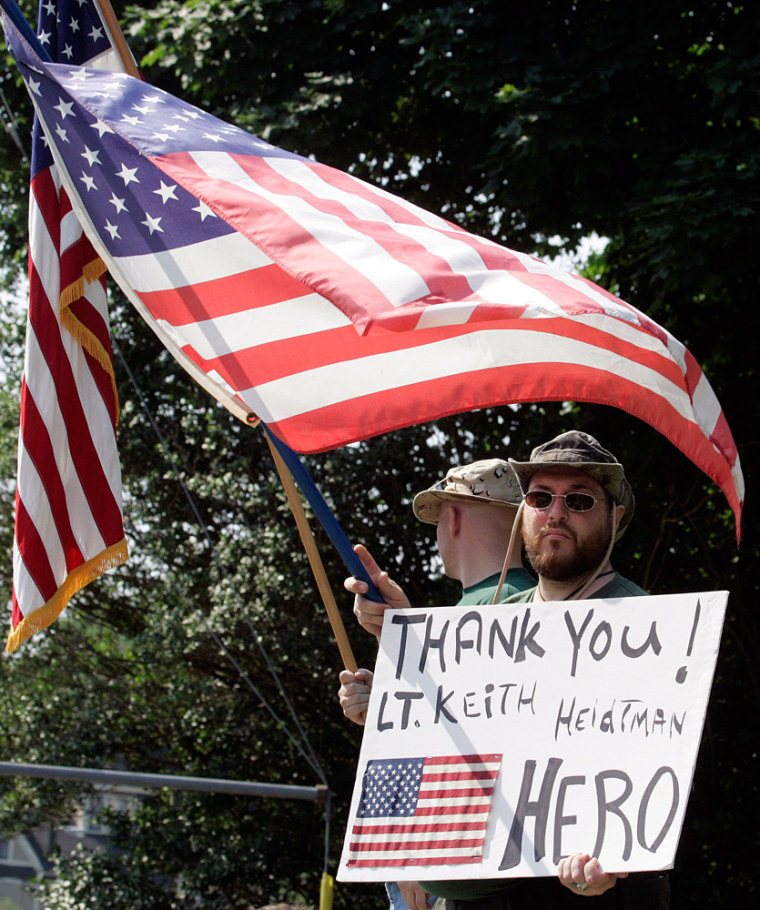At a social event recently, some of us were chatting about the subject of health care. One of the people in attendance, a man who hadn’t served in the Armed Forces, told me that I had a pretty good deal as a military retiree because I was eligible for very inexpensive health care. I reminded him that if I hadn’t been wounded while serving in the Army, I wouldn’t need any health care.
A small pension and cheap health care were not the things that motivated me, or anybody I knew, to join the Army. I and my comrades became soldiers because we thought then, and we still think today, that we are so fortunate to live in a free and prosperous country that we all have an obligation to serve it in a meaningful fashion that has no component of self-aggrandizement.
Like most young men in the 1940s, my father served in World War II. He was in the Army in New Guinea and the Philippines and undoubtedly would have been part of the invasion force if Japan hadn’t surrendered. The legacy of his service and that of his generation, almost half a million of whom didn’t survive, is the freedom of millions of Americans and literally billions of others around the world. Forty years ago, the torch was passed to my generation, and now it has been passed again to a small cohort of brave and selfless young Americans.
It’s disconcertingly sad to realize that the obligations of democracy are performed by very few. In the last presidential election, almost half of our countrymen who were eligible to vote didn’t bother to participate. Despite plenty to deter them, including the prospect of getting killed or maimed, even the Iraqis did much better. One shudders to contemplate how many Americans would vote if there were any physical danger in doing so.
The perception of many Americans is that good citizenship should consist of nothing more than paying taxes, an exercise made more onerous because the money is going to a government that is occasionally corrupt, often wasteful and usually not very good at things that really matter. It is not surprising that, in poll after poll, the least popular institution in the United States is the Congress.
The most popular institution? The Armed Forces.
But, despite the Armed Forces’ popularity among the citizens, there is no rush of citizens to join them. There is a widespread notion that there is no reason to sacrifice as long as there are others to do it for us, a notion reinforced by leaders with insufficient political fortitude to actually lead. Instead, elected and appointed officials have spent lots of money finding technological substitutes for human beings, not recognizing that the defense of the Republic hinges less on the ability to guide a bomb up an insurgent’s nostril than it does on the commitment of Americans to participate in the protection of their own freedom.
So, for most Americans, defense has become an obligation performed by others. At some price, the reasoning goes, a few people will be willing to take up arms on our behalf, and the rest of us can treat our own defense with a postmodern insouciance that is possible only because we have the money to do it. We have found a way to rationalize buying our way out of our patriotic obligations.
But notwithstanding the modest pay and occasional re-enlistment bonuses they receive, the young Americans who wear the uniform of this nation are not in the service for the money.
In this regard, I am reminded of a conversation I recently had with a medical doctor who regularly inspects me to record the ravages of time and the deleterious effects of having suffered a head wound in combat in 1968.
I asked him why he focused on internal medicine, spending long days with patients who are unpleasantly ill, rather than a more genteel specialty with short hours and far more pay.
He said it was a choice between net worth and self worth.
On the birthday of our nation, it is a fitting time to give thanks for the American patriots who find self worth more compelling than anything else in the world.
Jack Jacobs is an MSNBC military analyst. He is a retired U.S. Army colonel. He earned the Medal of Honor for exceptional heroism on the battlefields of Vietnam and also holds three Bronze Stars and two Silver Stars.
